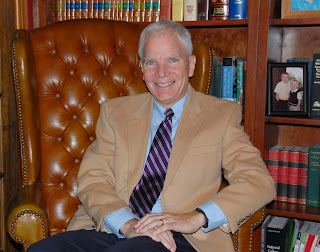In my last post, I discussed the new "Constitutional Carry" laws enacted in Texas during the most recent legislative session. Those laws took effect on September 1st. The changes to the gun laws were not the only alterations to Texas' legislative canon. As I mentioned in that last post, a few other notable additions caught national attention. The abortion restriction/life protection of the fetal heartbeat law and the voter suppression/election integrity laws elicited praise/criticism depending upon the reporter's political stance.
Those changes and the attention they garnered obscured some other modifications to the Texas Penal Code. Before you strap on your Smith and Wesson and come on down, I want to make you aware of a half-dozen of them. I'd like to thank my friend, Richard Alpert, a member of the Baylor Law School faculty and legislative update speaker, for helping me bring to your attention a few that might have escaped local or national publicity.
 |
|
ProtoplasmaKid, |
1. The Texas Legislature solved homelessness. I think that the Nobel Peace Prize will be making its way to Austin soon. Every state can follow our model with this innovative and low-cost strategy. The governor signed a bill making homelessness illegal. Texas Penal Code § 48.05 prohibits camping in a public place. To ensure that all those people who want to be homeless can't sneak around our prohibition, the language forbids sleeping in tents, lean-tos, with bedrolls, sleeping bags, or blankets. Because we're not inhumane down here, the law specifically says that before the police can ticket for the violation, they must first counsel with the camper about alternatives, alert them to the dangers of human trafficking and try to contact appropriate government and non-profit officials. If they arrest, the police must also make sure that the camper's belongings are safeguarded. Our law enforcement officials don't need to be concerned with arresting murderers and rapists, they have a new legislative priority. Still, the Nobel Prize will look cool at the governor's mansion.
2. Lest you become concerned that all these counseling duties will make our local police too soft, Texas Penal Code § 9.54 authorizes the use of deadly force with drones by law enforcement. Drones are prohibited from killing if they are autonomous. No algorithm will determine when a robotic death ray may be deployed down here.
3. While the Texas legislature relaxed the gun laws, it did up the restrictions on fireworks. Texas Penal Code §50.02 makes it a felony for someone to explode fireworks intending to interfere with the official duties of a law enforcement officer.
Something like this might have happened in Portland or New York or Los Angeles. No one seems to be quite sure. There are no reported cases of firework assaults occurring here in Texas. We also had a variety of laws prior to September 1st safeguarding police and criminalizing attempts to hinder them in their duties. Apparently, what the legislature had done in the past wasn't enough. Now, police are specifically protected from Black Cats and bottle rockets.
This change seems instructive on the legislative process in the social media age. Someone saw a post about something happening somewhere. Texas now has a law here to punish behavior that maybe happened there.
 |
| English: Designer unknown; published by Knopf, Wikimedia Commons |
4. Police were not the only occupation to find the rules changing around them. Texas Government Code § 1702.3876 makes it against the law to impersonate a private investigator. Many fiction readers/writers praise research as the key to authentic writing. Remember this one before you go full-on "Spade and Archer" preparing for your next story.
5. The legislature modified Texas Penal Code § 43.251and raised the minimum age for employment in a sexually oriented business from 18 to 21. If you find yourself hanging out in some seedy cabaret and alongside a pole-dancer, rest assured that, by law, that employee is old enough to carry a handgun in a holster. You might keep your artistic criticisms to yourself.
6. If these changes arouse your passions and motivate you to run for office, but you find yourself constrained because you happen to be ineligible as a convicted felon, take heart. Since September 1st, Texas Penal Code § 37.10 reduced the punishment for individuals convicted of lying on an application for a place on a ballot. If you want to cross your fingers and fudge about your record, hoping that no one notices, the penalty for getting busted was lowered from a Class A misdemeanor to a Class B. You're looking at only half as much time in jail.
Of course, there were a host of other legislative changes. Some plug loopholes and others address niches that had been overlooked in the hustle of past legislative sessions. Here's hoping that the above list will help you stay legal on your next swing through the Lone Star State.
Until next time.




































